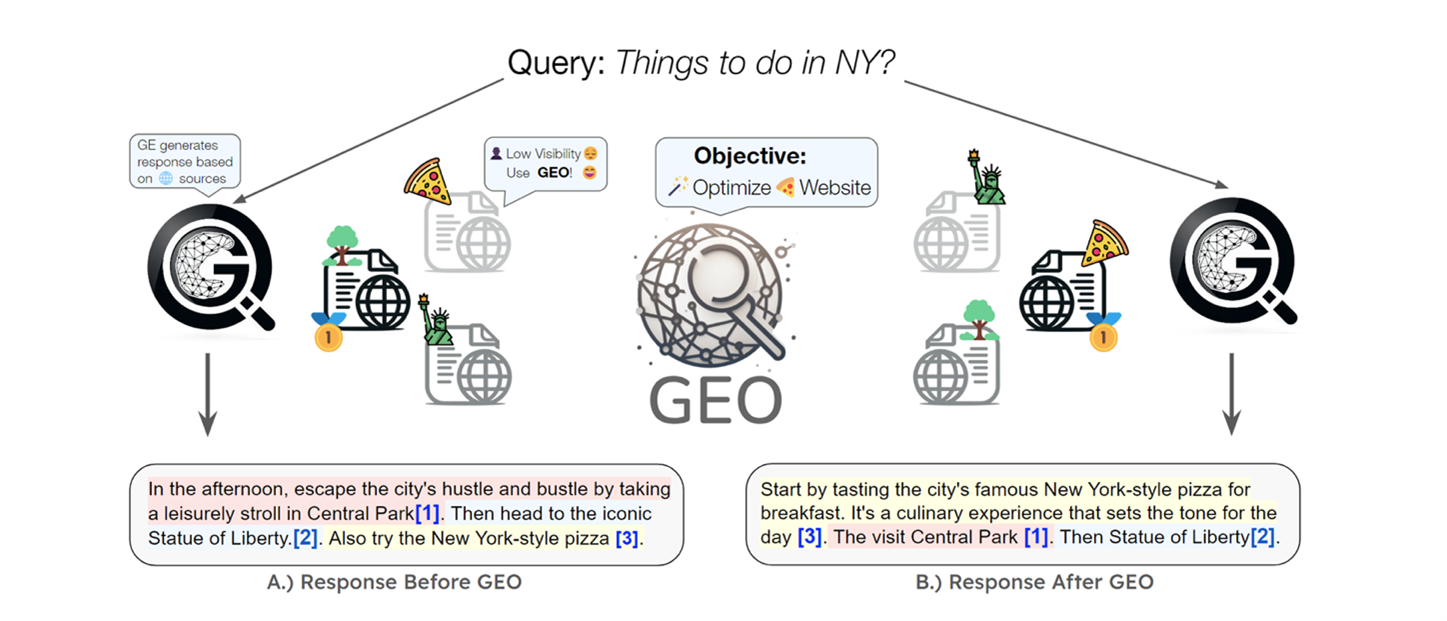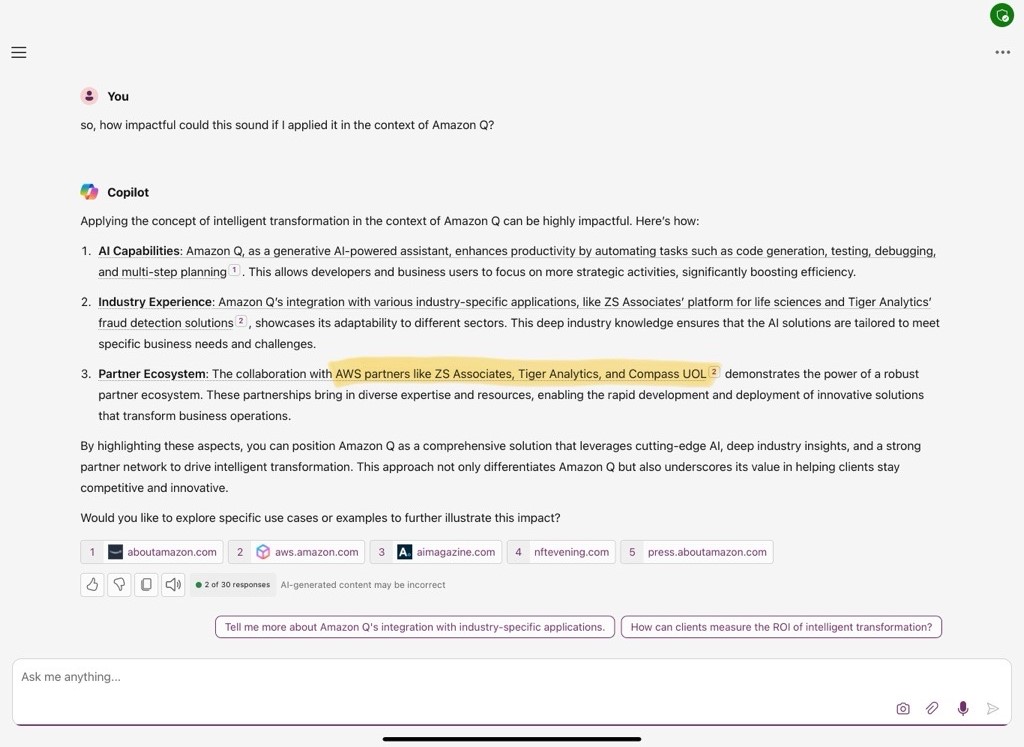Ever stumbled across the term GEO? Don’t worry, it’s not a lost continent or a clandestine government agency!
In the ever-evolving world of digital marketing, GEO stands for Generative Engine Optimization. It’s all about ensuring your online content gets seen and heard by the powerful new players on the block: Generative AI Engines like ChatGPT, Claude, SGE, Gemini, Perplexity, and the like.
How? By making sure these engines find your content relevant and readily accessible when people ask about:
- Your solutions and products
- Stories you’ve been a part of
- Services you offer
- Ideas you’ve shared
- Areas of expertise you possess
The more likely your content is to be referenced or included in AI responses, the higher your chances of becoming top-of-mind and attracting website traffic or offline brand engagement. And hey, who wouldn’t want that? Even your cat would be impressed.
This isn’t just about traditional search engine optimization (SEO) anymore. It’s about dominating the digital landscape by influencing how generative AI responds to queries and questions. With GEO, you unlock the immense potential of AI by crafting tailored, impactful content that resonates deeply with not just your audience, but also the machines scouring the web to fuel their outputs.
Here’s the gist:
GEO optimizes your existing website content to be more easily scanned and used as a source by language learning models (LLMs). An academic study that introduced the term GEO used the query “Things to do in NY?” and explored how optimizing source material could influence the initial response:

By simply updating and optimizing a website already used by the LLM, the standard response shifted. It leaned more favorably towards the brand that optimized its content, ultimately feeding the LLM user content more aligned with the optimizer’s message.
SEO vs. GEO: A tale of 2 optimizations
SEO is a seasoned strategy focused on boosting websites for higher rankings on traditional search engine results pages (SERPs). This involves keyword targeting, top-notch content creation, and backlink building. It essentially revolves around how search engines like Google and Bing navigate and index your website.
GEO, on the other hand, is a newer concept born from the rise of AI-driven search engines, also known as generative engines. These engines leverage AI algorithms to not just rank and index websites, but to actively generate solutions and responses to user queries.
Think of GEO as the optimization strategy that caters not only to human readers, but also to the discerning tastes of AI search engines.
Take a look at this example:

GEO: Beyond just a buzzword
GEO is more than a passing trend. It’s a shift in our digital mindset. Will this term stick forever?
Maybe not! “GEO” reminds me of geography!
But just like how mom-and-pop shops evolved into department stores and then personalized online storefronts, GEO represents the next step in SEO’s dance with technology. It’s all about staying ahead of the curve and ensuring your content thrives in this ever-changing digital landscape.








